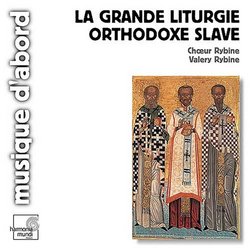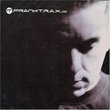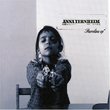| All Artists: Dimitry Bortnyansky, Artemy Vedel, Grigor F. Lvovsky, Gavriil Yakimovich Lomakin, Alexander Arkhangel'sky, Alexander Grechaninov, Nikolai Sr Kedrov, Nikolai Lubimov, Dobri Hristov, Pavel Chesnokov, Valery Rybine Title: La Grande Liturgie Orthodoxe Slave Members Wishing: 0 Total Copies: 0 Label: Harmonia Mundi Fr. Release Date: 6/14/2005 Album Type: Import Genres: Special Interest, Pop, Classical Styles: Vocal Pop, Opera & Classical Vocal, Historical Periods, Classical (c.1770-1830), Early Music, Sacred & Religious Number of Discs: 1 SwapaCD Credits: 1 UPC: 794881766628 |
Search - Dimitry Bortnyansky, Artemy Vedel, Grigor F. Lvovsky :: La Grande Liturgie Orthodoxe Slave
 | Dimitry Bortnyansky, Artemy Vedel, Grigor F. Lvovsky La Grande Liturgie Orthodoxe Slave Genres: Special Interest, Pop, Classical |
Larger Image |
CD DetailsSimilar CDs
|
CD ReviewsSo many decades wasted in clandestine spirituality Jacques COULARDEAU | OLLIERGUES France | 06/29/2008 (5 out of 5 stars) "This is a selection of 18th-20th century liturgical compositions by various Russian composers. It reflects the captured glory of the Saint Petersburg imperial court, and a few decades after its fall in 1917, under and after the musical revolution brought about by the very productive Dimitri Bortnianski. His "Gloria", given on this CD, is unique in its dirge interlaced to glorification, even joy into a texture that evokes both sadness and happiness, the sadness of being human with a fate set by God that is not a straight road to glory and the happiness of the certitude that at the end of the road there is salvation. The hymn "Open Upon Me the Gates of Repentance" by Artemi Vedel is prodigious in the vastness of the sonic space the composer opens to our ears, so immense so limitless that our repentance can soar up and away into that limitlessness and become so thorough and endless that we seem to merge with that fathomless space in which all the voices of our soul, and they are multiple, reverberate and echo in multiple directions. Lvovsky's "Song of the Cherubim" is an inner-oriented contemplation of the soul that gives birth to these Seraphim, that gets its life from them. Dual-carriage way of the music rising and descending to soar and land over and on the soil of our faith. Gavriil Lomakin is so sad, so deeply sad that we kind of die in his long lament. Arkhangelsky wakes us up from that torpor even if the recovered power is nothing but the suffering of our flesh and soul in the torments of our sinful life but in spite of the title it does not "Appease the Afflictions". It magnifies them to a titanic dimension. Gretchaninov brings some faith in a future of salvation into that music. But with him we really enter the century of the revolution and this music takes a refrained inner-centered dimension . Nikolai Kedrov and his "Pater Noster" uses the bass solo as the voice of God to which the choir answers in pacifying accents reclosing the door to anything outside the faithful heart. Nikolai Lyubimov works on the same contrast in his "Blessed is the Man". But the bass is more the deep call of our human power, of the human vanity that may make him believe he can change the world, but the choir brings that voice back to earth to some realistic resignation. Dobri Christov is the big name of this anthology. He adds to the previously identified inner-centered celebration of the Church and faith a vastness that is really symphonic. That makes it wider, all-involving and all-including, pervasive but not in any way different. It multiplies the number of eyes contemplating our indefectible faith. In the piece "In Thy Kingdom" the soprano voice is set in full contrast with all the other voices, and its evocation of the beauty of faith is like surrounded, besieged, maybe founded by the other voices like the multiple motivation modern life provides us with to believe and praise and desire the Lord's kingdom. "Praise the Name of the Lord" contrasts in a very standard way the bass voice of the Lord and the choir, the voice of the faithful, that seems to roll like the water of some powerful river across the Russian plains. Same effect, same structure, for " We Sing Unto Thee". The choir is just more curbed, more reserved even and the various voices of this choir try to follow their independent and yet coordinated ways. The small piece to the Virgin is surprising because the bass voices have been put aside. But in fact isn't that dictated by the Virgin herself? Tchesnokov is flamboyant, they say, but I feel the piece "God Save Thy People" is an immensely suffering lament, a dirge that does not aim at bringing the people to surge, rise, raise their voice. It is there like to sublimate the suffering of the people into total resignation to a dominant never-ceasing bass that preaches the acceptance of fate by the choir of the people. Resign and submit to what man-made "history" has in store for you because God-made salvation will reward you.
Dr Jacques COULARDEAU, University Paris Dauphine, University Paris 1 Pantheon Sorbonne & University Versailles Saint Quentin en Yvelines " |



